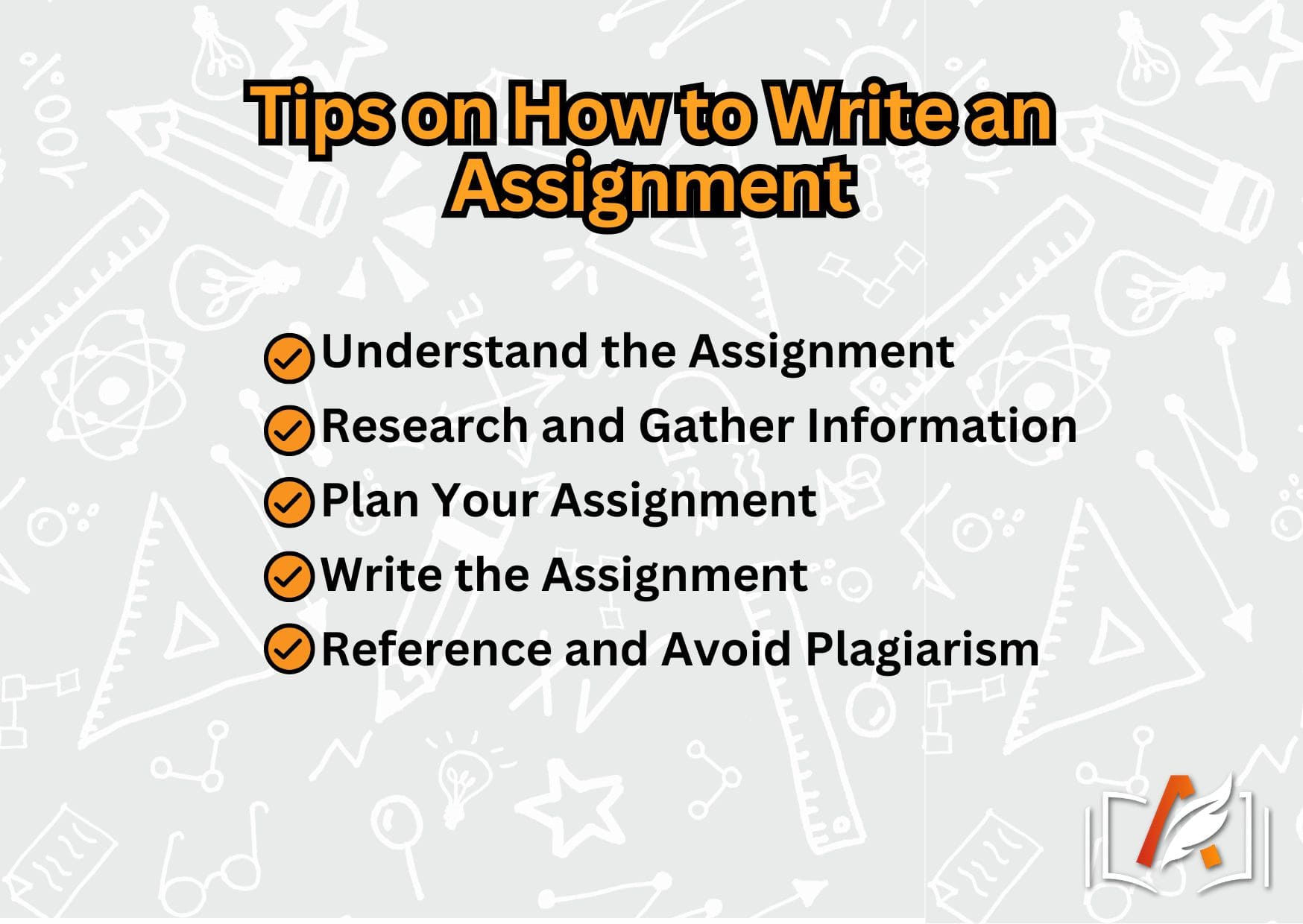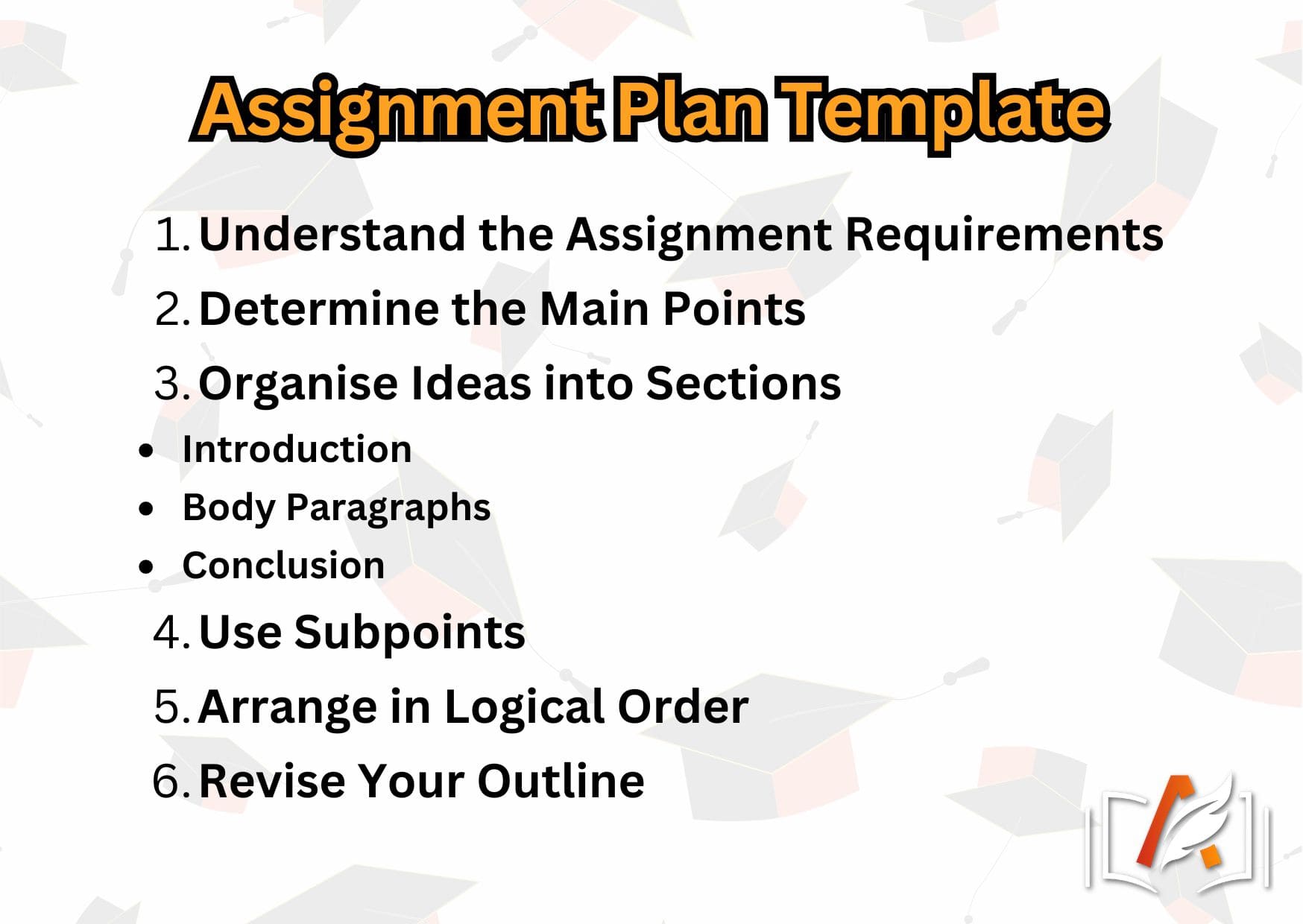 Ruby Butz
Ruby Butz

Writing an assignment is an essential part of your academic success. However, mastering this skill isn't only helpful in getting good grades. It's critical for your performance at university, but the ability to structure, research, and present your ideas can also play a crucial role in your career. Whether you're only learning how to write assignments correctly or aiming to finetune your skills, the way you approach each step of the process can determine the quality of your work.
This article will discuss what you need to know before crafting an excellent assignment, from understanding the requirements to editing your final version. Follow these tips to approach writing professionally and achieve outstanding results.
Step-by-Step Instructions for Writing an Assignment
1. Understanding the Assignment
If you wonder how to start an assignment, one of the first things is to ensure you understand what you’re being asked to do. Misinterpreting the question is the most common mistake that leads to unsatisfactory grades. Here are some quick tips for deciphering the instructions:
- Topic words: Determine the subject matter you need to pay attention to.
- Task words: The words like "discuss," "compare," or "analyse" can help you grasp the assignment requirements.
- Limiting words: If you need to clarify how to do assignments in the UK, identify words or phrases that direct to specific locations, periods, or contexts and narrow your work scope.
- Use proven resources: If you need to independently develop a topic for a modern study assignment.

2. Research and Information Gathering
Conducting thorough research is a crucial part of writing effective assignments. Let’s explore how to collect information that fits the task requirements:
- Utilise reliable sources such as academic journals, textbooks, and reputable websites.
- Check the credibility of online sources before including them in your work.
- Summarise key points and organise references.
3. Assignment Plan
Planning is crucial for structuring ideas before completing the task. It gives assignments a specific direction. Students can use an outline or a mind map to organise their main points and sub-points.
Assignment planning ensures that your work is logical and covers the main points. A good plan will also save you time because if you know beforehand what to focus on, the chances of getting distracted are lower.
Writing a plan is challenging for many education recipients, and that’s where expert assistance can come in handy. An online essay writing platform can reduce stress and save time. Qualified authors will make a detailed assignment structure tailored to your specific needs.

4. Writing the Assignment
Introduction:
The first part of your assignment sets the tone for the whole work. It starts with a hook to engage the audience, followed by a thesis statement that outlines the central argument or purpose.
Body Paragraphs:
Write a clear topic sentence for each paragraph in your college assignments to introduce your points. Support each point with quotes, data, or examples, then analyse that evidence to show how it reinforces your argument.
Conclusion:
This part of your assignment summarises the key points and restates the thesis. Don’t add new information; instead, strengthen your main argument concisely.
5. Referencing and Avoiding Plagiarism
It’s impossible to succeed in academic writing without proper referencing. Check a high-quality assignment plan example and common referencing styles to know how to give credit to the sources you’ve used.
- APA: This style is often used in the social sciences.
- MLA: It’s frequently used in literature and humanities.
- Chicago: Students use it in history and some social sciences.
It’s important to note that paraphrasing the original idea in an assignment requires citing the source. These steps will help you avoid plagiarism in your work. If you have difficulty referencing sources consistently or need a student assignment sample format, buy assignment assistance from professional writers. External guidance will enable you to ensure your assignment is adequately referenced.
How to Make Assignments According to UK Standards
1. Academic Tone and Style:
Maintaining the correct tone is essential if you want to succeed with your assignment. You should use formal language, ensuring your work is objective. Avoid casual language and personal views.
2. Editing and Proofreading:
After completing your assignment, the next crucial stage is editing. These assignment writing tips will help you self-edit your writing properly:
- Firstly, check grammar mistakes and punctuation.
- Ensure ideas flow coherently from one section to the next.
- Make sure your arguments are clear and easy to follow.
You can ask someone to review your work or use professional assignment writing services to ensure it's error-free and well-polished. Thus, you’ll be more confident in how to write an assignment for university or college and achieve excellent outcomes.
FAQs
1. What does explain mean in an assignment?
"Explain" requires you to clarify a concept to the reader. This way, they’ll better understand key points and details.
2. How to write the cover page of an assignment?
The first page assignment writing should include the title, your name, the course, the instructor’s name, and the submission date. Format it according to your institution’s guidelines.
3. What are the rules for writing an assignment?
You should understand the assignment, follow the required structure, use credible sources, reference correctly, and edit before submission.
4. What to do when you don't understand an assignment?
If you aren’t sure how to write a good assignment and what to do in the task, ask your peers or an instructor. Don’t wait until the last minute to avoid mistakes.

Meet Ruby Butz, the accomplished author at the StateOfWriting educational blog. With a Master’s in English Literature, notable articles, and extensive teaching experience, she has helped thousands of students develop strong writing skills.
Writers are verified and tested to comply with quality standards.
Work is completed in time and delivered before deadline.
Wide range of subjects and topics of any difficulty covered.
Client id #: 000410
Paper type: CourseworkAll was completed just as I wanted. Excellent support - Big thanks to all of you 🙏🤗
Client id #: 000398
Paper type: Research paperFrom my experience, StateOfWriting excels in quality and service. My paper was well-researched, unique, and expertly written. Many thanks!
Client id #: 000402
Paper type: Research paperI found this service online, ordered the research, and within eight hours I had my paper ready. And the price was great - thank you!